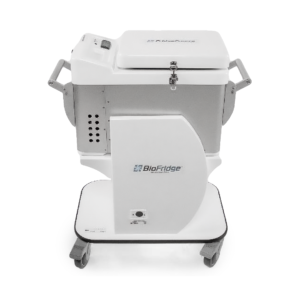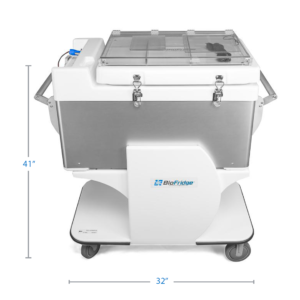How do Environmental Extremes impact Blood Components?
Blood components are often subjected to environmental extremes during storage and transportation. By its very purpose, blood is hardly ever stored in one place for longer durations.
Once collected from a donor, it begins its journey towards a blood bank which is also not the final destination. It would then be transported to a hospital where it would be transfused to a person in need of it. Thus, blood is constantly being transported until it is transfused.
Storage of blood is a delicate procedure. Blood can be stored in its original form as whole blood for about 24 hours. However, it needs to be broken down into its components to be stored effectively. These components include plasma, red blood cells, white blood cells, cryoprecipitate and platelets, each of which need to be stored at specific temperatures.
Temperature Extremes
Temperature extremes can cause significant damage to blood and its components. Even while being transported, the recommended temperature requirements must be met in order to maintain the efficacy of the components.
Whole blood and red blood cells can be stored effectively between 1ºC and 6ºC. Temperatures below this range can cause hemolysis while temperatures above this range can lead to overgrowth of non-specific bacteria. Both of these conditions can damage the potency as well as life span of blood.
It is essential to store plasma at temperatures of ≤-18ºC to maintain coagulation factors. Blood platelets should be stored at a temperature of 22ºC and must also be constantly agitated in order to maintain their pH levels.
These temperature related conditions and regulations need to be met even while blood is being transported. Portable medical freezers and refrigerators can be extremely handy for this purpose.
Natural Disasters
Sufficient supply of blood is immensely important especially during natural disasters. People who experience injuries due to the disaster are often in immediate need of blood transfusions. Hence, it is up to blood banks to urgently but safely transport blood to hospitals where it can be made available for those in need.
In such situations too, having a portable medical refrigerator or freezer can be of great assistance. In most conditions, portable medical refrigerators can assure purity of the transported blood, unless it was contaminated through storage in non-sterile conditions or came in contact with hazardous material like flood waters, blood stored in portable refrigerators is often safe for medical usage.
As established already, a portable medical refrigerator and freezer can be particularly handy when storing blood and its components in tough conditions. Biofridge’s portable refrigerators and freezers are loaded with a variety of features that could aid you during challenging circumstances.
Our products include features such as comprehensive end-to-end Blood Management solution and effective blood management program to better patient outcomes, utilization of less blood and reduction of overall blood spend. They also help reduce blood component waste during trauma cases.
They also meet AABB Standards & Accreditation and are in compliance with the Code of Federal Regulations and federal guidance documents. They can maintain consistent temperatures even in the toughest of conditions which, as previously stated, is ideal for appropriate blood storage.
In case you would like to know how we can help you based on your requirements, feel free to browse through our products. You may also write to us at sales@biofridge.com or give us a call on 760-233-8847 for any clarifications.




